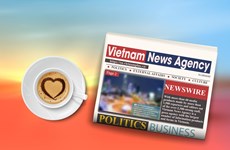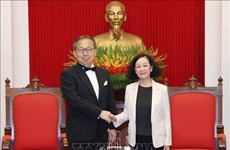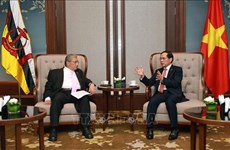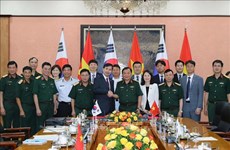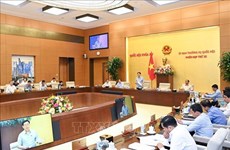Havana ceremony highlights significance of 1968 General Offensive
The Vietnamese Embassy in Cuba and the Cuban Institute for Friendship with the Peoples (ICAP) held a ceremony in Havana on February 9 to mark 50 years since Vietnam’s General Offensive and Uprising in the spring of 1968.
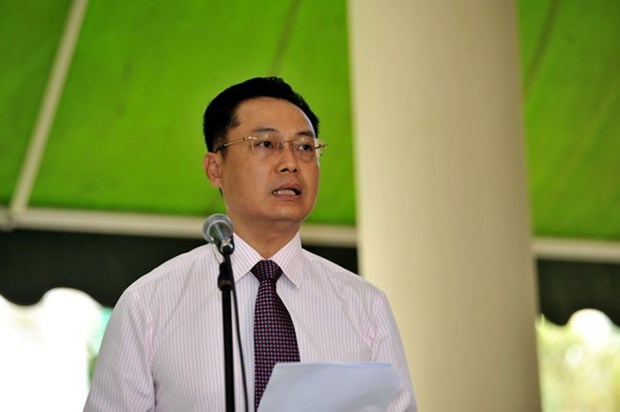 Vietnamese Ambassador to Cuba Nguyen Trung Thanh speaks at the ceremony in Havana on February 9 (Photo: VNA)
Vietnamese Ambassador to Cuba Nguyen Trung Thanh speaks at the ceremony in Havana on February 9 (Photo: VNA)Havana (VNA) – The Vietnamese Embassy in Cuba and the Cuban Institute for Friendship with the Peoples (ICAP) held a ceremony in Havana on February 9 to mark 50 years since Vietnam’s General Offensive and Uprising in the spring of 1968.
The offensive began in the early morning of January 31, 1968 when liberation forces simultaneously launched attacks on bases of the US troops and the US-backed South Vietnam government in cities such as Hue, Da Nang, Quy Nhon and Saigon, and hundreds of towns from Quang Tri to Ca Mau.
The military campaign destroyed huge amounts of facilities and logistics used by the US and the southern regime’s armies. People in rural areas also took this opportunity to rise up against the US-backed administration.
The offensive marked a strategic turning point for the resistance war against the US and its allies. It caused the US a ‘sudden shock’, disrupted their strategic plan, shook the White House, the Pentagon and all of the US, and forced then US President Johnson to deescalate the war and agree to sign the historic Paris Peace Accord. The victory also helped lead to the liberation of southern Vietnam and the national reunification in 1975.
Addressing hundreds of participants in the Havana ceremony, Vietnamese Ambassador Nguyen Trung Thanh noted the valuable lessons of the offensive. He said the campaign highlighted Vietnamese people’s aspiration for independence and freedom, the creativity in making guidelines and directing the revolutionary struggle, the strength of the great national unity bloc, the resolve to fight and win, the daring to confront the world’s strongest war machine, and the pure international solidarity.
He stressed that the 50th anniversary of the General Offensive and Uprising coincides with the time Vietnam has attained a number of major reform achievements. The country is facing new development opportunities as well as difficulties and challenges. The Vietnamese people are now even more aware of the importance of the leadership of the Communist Party of Vietnam and the resolve to fight and win in the struggle for national liberation and in peace and national development and protection.
[Photos on 1968 Spring Mau Than General Offensive and Uprising]
The diplomat also underscored the precious contribution by global friends, including Cuba. The Latin American nation was one of the first countries to recognise the National Front for the Liberation of the South of Vietnam, open an embassy in the liberated region, and assign an ambassador to the Provisional Revolutionary Government of the then Republic of South Vietnam.
Notably, then Cuban President Fidel Castro was the only foreign leader to cross the 17th parallel north to visit the liberated region in southern Vietnam in September 1973 during the wartime, Thanh added.
ICAP President Fernando Gonzalez Llort said the 1968 General Offensive and Uprising marked a turning point and resounded around the world, adding that lessons from history will be helpful for building the future.
At the ceremony, Dr Ruvisley Gonzalez from the Cuban institute for international policy studies reviewed the key developments of the offensive, along with global reactions then. Meanwhile, veteran journalist Marta Rojas recounted her memories of the southern battlefield of Vietnam and the war against the US of Vietnamese people.-VNA









